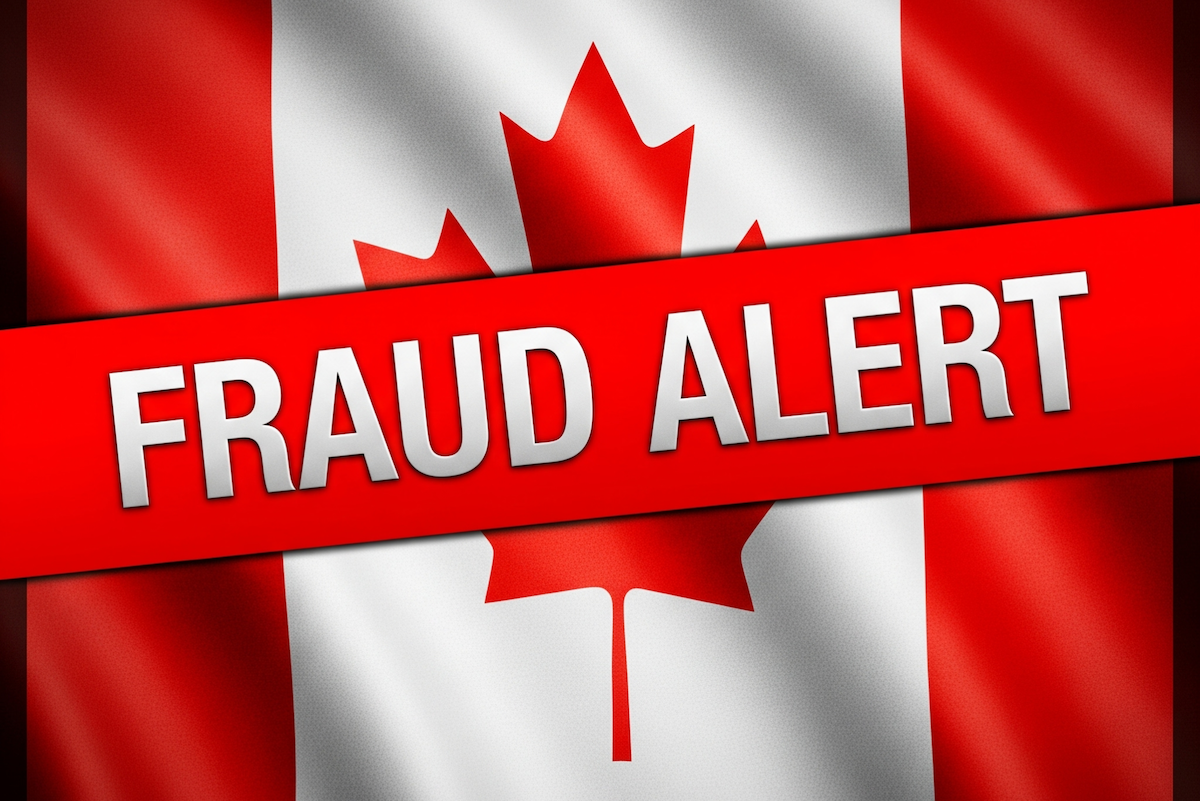Last Updated On 25 June 2025, 9:51 AM EDT (Toronto Time)
Canada’s asylum system is a beacon of hope for those fleeing persecution, offering robust support to help newcomers rebuild their lives.
However, public concerns have grown over a small subset of refugees and asylum claimants who may exploit this generosity.
Many claim that they have seen multiple instances of refugees and asylum claimants combining government financial benefits with unreported cash jobs, which also maximize Canada Revenue Agency (CRA) benefits.
This article explores the financial support provided to refugees, the reality of undeclared income, and the broader implications for Canada’s immigration system.
Please do not perceive this article as if all the refugees or asylum claimants abuse the system, since the majority of them are genuine and do not intend to scam the system.
Table of Contents
Through data, expert insights, a case study of a refugee family, and a real-world example from a Surrey trucking employer, we aim to provide the truth of many claiming government benefits.
Canada’s commitment to refugees stems from the 1951 United Nations Refugee Convention, which defines a refugee as someone with a well-founded fear of persecution based on race, religion, nationality, political opinion, or membership in a particular social group.
The Immigration and Refugee Board (IRB) and Immigration, Refugees and Citizenship Canada (IRCC) oversee the asylum process, distinguishing refugees from economic migrants seeking better opportunities.
Refugees in Canada fall into three categories:
- Government-Assisted Refugees (GARs): Resettled from abroad with federal support through the Resettlement Assistance Program (RAP).
- Privately Sponsored Refugees (PSRs): Supported by Canadian citizens or organizations for up to one year.
- Refugee Claimants (Asylum Seekers): Individuals applying for refugee status within Canada, awaiting an IRB hearing.
This article examines the financial benefits available to GARs and asylum seekers, the potential for abuse through cash jobs, and access to CRA benefits, illustrated by a case study and an employer’s experience in Surrey’s trucking industry.
Resettlement Assistance Program (RAP) for GARs
GARs receive RAP support for up to one year or until self-sufficiency, covering essentials like housing, food, and clothing. The program includes:
- One-Time Start-Up Payment: Up to $3,065 for a single person in most provinces, or $580–$780 in Quebec, often supplemented with in-kind donations like furniture.
- Monthly Income Support: Aligned with provincial social assistance rates:
- Ontario: ~$781/month (single), $1,672/month (family of four).
- Quebec: ~$628/month (single), $1,317/month (family of four).
- British Columbia: ~$610/month (single), $1,415/month (family of four).
These rates match social assistance for Canadian citizens, debunking myths of preferential treatment.
GARs must repay transportation and medical loans, up to $10,000, adding financial pressure.
The Interim Federal Health Program (IFHP) provides temporary health coverage, including prescriptions and limited dental care, until provincial plans apply.
Support for Asylum Seekers
Asylum seekers awaiting IRB hearings qualify for provincial social assistance if they lack resources, with rates mirroring those for residents:
- British Columbia: $610/month (single), $1,415/month (family of four).
- Ontario: $781/month (single), $1,672/month (family of four).
- Quebec: $628/month (single), $1,317/month (family of four).
Once granted a work permit—typically post-eligibility interview—assistance ceases if employment is secured.
Asylum seekers access IFHP health care and free education for children aged 5–18 with a Refugee Protection Claimant document.
In Quebec, the Regional Program for the Settlement and Integration of Asylum Seekers (PRAIDA) offers temporary housing and medical assessments.
CRA Benefits for Refugees
Recognized refugees (permanent residents or protected persons) can access CRA-administered benefits that are available to all low-income residents:
- Canada Child Benefit (CCB): Tax-free monthly payments for children under 18, requiring residency, a Social Insurance Number (SIN), and primary responsibility for a child. For 2025:
- $7,787/year ($649/month) per child under 6.
- $6,570/year ($547/month) per child aged 6–17.
- GST/HST Credit: Quarterly payments offsetting taxes, up to $519/year (single) or $1,083/year (family of four) in 2025, after filing taxes.
- Canada Workers Benefit (CWB): A refundable tax credit for low-income workers, up to $1,428 (single) or $2,461 (family) in 2025, based on earned income.
These benefits require tax filings with reported income. Undeclared cash earnings risk penalties or repayment if detected.
Meet this refugee family: a 35-year-old asylum seeker from a conflict zone, living in Toronto with his wife and three children (ages 3, 5, and 8).
Arriving in Canada in early 2024, they fled political persecution and filed an asylum claim at the border.
Their experience illustrates how benefits, cash jobs, and potential system misuse might intersect.
Financial Support
- Social Assistance: In Ontario, this refugee family receives $1,672/month for a family of four, covering rent and basic needs, contingent on the family’s reporting as unemployed.
- Interim Federal Health Program: Covers medical visits and prescriptions, including asthma medication for one child.
- Education: All three children attend public school for free with Refugee Protection Claimant documents.
- Work Permit: Six months after arrival, one or more of the family members obtains an open work permit but chooses not to report employment to maintain social assistance.
- CRA Benefits: After filing taxes with no reported income, the family receives $1,947/month in CCB ($7,787 × 2 for two children under 6, $6,570 × 1 for one child aged 8, divided by 12) and $90/month in GST/HST credit ($1,083/year).
Total Monthly Government Support: $3,709 ($1,672 social assistance + $1,947 CCB + $90 GST/HST), or ~$44,508/year, tax-free.
Cash Job
Facing a $2,000 transportation loan repayment and rising costs, both the husband and wife take cash jobs, each earning $1,600/month ($10/hour, 40 hours/week), paid in cash to avoid taxes.
By not reporting this income, he maintains “unemployed” status, preserving full social assistance and maximum CRA benefits.
Total Income: $3,709 (benefits) + $3,200 (cash job) = $6,909/month, or ~$82,908/year, with only benefits reported.
Risks
This family’s unreported income constitutes fraud:
- CRA Penalties: Overpaid CCB and GST/HST credits could be reclaimed with fines.
- IRCC Consequences: Misrepresentation risks deportation under the Immigration and Refugee Protection Act.
- Social Assistance Clawback: Ontario could recover overpaid assistance.
While plausible, such cases are rare, as fraudulent claims are limited.
Barriers like language or credential recognition may drive informal work, but detection systems curb abuse.
In Surrey, British Columbia, a hub for Canada’s trucking industry, a small business owner, Rajesh Patel (name changed for privacy), shared a troubling experience with a job applicant in early 2025.
Rajesh, who runs a mid-sized trucking company specializing in long-haul transport, advertised for a mechanic to maintain his fleet of vehicles.
Among the applicants was an asylum seeker, who arrived in Canada in 2024 and was awaiting an IRB hearing.
During the interview, this asylum seeker impressed Rajesh with his mechanical skills, citing prior experience in his home country.
However, he requested to be paid in cash for the $25/hour position, explaining that reporting income would stop his government financial assistance and reduce his CRA benefits.
Specifically, this asylum seeker noted that his family’s social assistance ($1,415/month for a family of four in BC) and CRA benefits, including the CCB ($1,300/month for two children under 6) and GST/HST credit ($90/month), depended on him remaining “unemployed.”
A reported income would cut his social assistance and adjust his CRA benefits downward, as these are income-tested.
Rajesh declined the request, citing legal and ethical concerns. Paying cash would expose his business to CRA audits and penalties for unreported wages.
He also worried about fairness, noting that other employees, including Canadian citizens, report their income and pay taxes.
This asylum seeker’s request, while not representative of all asylum seekers, left Rajesh frustrated, fueling his skepticism about the asylum system’s oversight.
Rajesh’s story, while anecdotal, reflects concerns in industries like trucking, where labour shortages drive demand for skilled workers.
The trucking sector in British Columbia, facing a shortage of mechanics, often attracts newcomers, including asylum seekers with work permits.
However, requests for cash payments highlight a gap in enforcement.
If this asylum seeker earned $4,000/month in cash (40 hours/week at $25/hour), although cash jobs are usually paid less, his family’s total income could reach $6,805/month ($1,415 social assistance + $1,300 CCB + $90 GST/HST + $2,000 cash), or ~$81,660/year, with only benefits reported.
Such cases risk undermining trust in the system, as employers like Rajesh feel caught between labour needs and legal compliance.
The Canadian Anti-Fraud Centre and IRCC encourage reporting such incidents, but genuine small businesses may hesitate due to time or resource constraints.
And this is not it; many employers even intentionally hire people seeking to work on cash, as they tend to work at a much lower rate than someone working on SIN.
This directly fuels the unemployment rate in the country, leaving many Canadians without a job.
In 2024, 190,039 claims were referred, with 46,480 accepted and 11,761 rejected, showing rigorous vetting.
High rejection rates (e.g., 56% for Indian claimants in 2021) highlight scrutiny.
Canada’s refugee system supports 190,039 claimants annually, with 46,480 accepted in 2024, offering aid like $1,415/month for a family of four in BC and CRA benefits like $1,947/month for three kids.
The influx of asylum seekers, combined with concerns about fraudulent claims and unreported cash jobs, has significant economic implications for Canada, particularly in housing, social services, and taxpayer costs.
Direct Costs of Housing Asylum Seekers
The federal government has spent heavily on accommodating asylum seekers, particularly through hotel bookings.
From February 2023 to February 2024, Ottawa spent over $115 million housing nearly 5,000 asylum seekers in Niagara Falls hotels, with an average stay of 113 days at $208 per person per day, covering rooms, meals, and security.
Across the country, IRCC reportedly funded approximately 4,000 hotel rooms for 7,300 asylum seekers in 2024, with a projected cost of $544 million for 2023–2024 for 4,050 rooms across 34 hotels in six provinces.
Since 2017, IRCC has spent $1.76 billion on temporary shelter for asylum seekers, including $269.4 million for Roxham Road arrivals from April 2017 to September 2022.
Additionally, the federal government under Justin Trudeau pledged $750 million to Quebec in 2024 to address the province’s strain from asylum seekers, who comprised 65% of official border crossings and 95% of irregular entries in 2023.
Budget 2023 allocated $530 million for IRCC to provide short-term accommodations, with $1.1 billion over three years (2024–2027) for municipalities and provinces via the Interim Housing Assistance Program (IHAP).
These costs reflect the government’s response to a 1,500% surge in asylum claims by international students over five years, with 14,000 claims from January to September 2024.
Strain on Housing and Social Services
The high volume of asylum seekers—190,039 claims referred to the IRB in 2024, with 272,440 pending—exacerbates Canada’s housing crisis.
Quebec Premier François Legault called the province’s capacity at a “breaking point” in January 2024, citing pressure on housing, education, and health care.
In Toronto, 4,332 asylum seekers were in shelters and 1,961 in hotels as of mid-April 2024, with evictions from IRCC-funded hotels leaving some, like a North African claimant, homeless.
Even the last immigration minister, Marc Miller, once considered buying and converting hotels for asylum housing to reduce costs from block-booking hotels (e.g., $94 million from September 2021 to January 2023).
However, this raises concerns about diverting resources from domestic housing needs.
Critics argue that purchasing hotels for unadjudicated claimants is inefficient and costly, potentially inflating hotel and Airbnb prices.
The asylum seeker’s family and Surrey employer’s stories highlight how many might exploit benefits through cash jobs, but such cases are rare, with robust detection in place.
Misinformation, like claims of $3,874/month, fuels frustration, yet immigration ranks low among public concerns.
By tightening oversight, supporting legal work, and countering myths, Canada can uphold its humanitarian legacy while ensuring fairness.
You may also like: 5 New CRA Benefit Payments Coming In July With An Increase
New GST Payment Increase In Canada Effective July 2025
New Canada CDB Payment Of Up To $200 Starting In July 2025
New CPP Payments to Be Sent Canada-Wide on June 26


